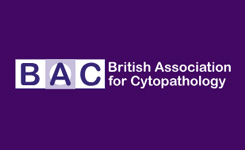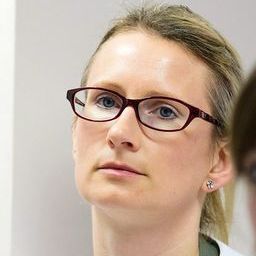Cytopathology
Does the WHO standard address diagnostic uncertainty in semen analysis?
Cytopathology
Does the WHO standard address diagnostic uncertainty in semen analysis?
9am – 9.30am BST, 23 September 2025 ‐ 30 mins
Cytopathology
The World Health Organisation has provided written guidance in semen analysis for more than 40 years. Some individuals and organisations view the WHO manual as the ‘bible’ for diagnostic andrology and a means of providing best practice and standardisation for pathologists and reproductive specialists. However, the WHO standards have always existed as a ‘compromise’ in terms of best practice in the knowledge that any established practice must be accessible to all countries no matter what their levels of skills, training and resources.
However, in doing so, WHO standards have not developed significantly in more than 4 decades and have failed to adequately address the continued levels of subjectivity associated with manual analysis of morphology and motility. As such, these measures, or moreover estimates are associated with a high level of diagnostic uncertainty. Making semen analysis more cost-effective, including embracing technology should be seen as a priority if standards are to improve.
Speakers
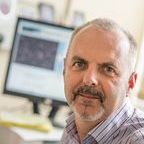
Dr Mathew Tomlinson
Consultant Scientist in Reproductive Medicine, Andrology Consulting
Post vasectomy semen analysis: Is it time for a change?
Cytopathology
Post vasectomy semen analysis: Is it time for a change?
9.30am – 10am BST, 23 September 2025 ‐ 30 mins
Cytopathology
Abstract
It is vitally important to both patients and surgeons that there is a test which can confirm vasectomy success. Patients want to know that they can safely stop additional contraception with minimal pregnancy risk, as soon as possible. Doctors want to know that they have done a good job and that there is a very high likelihood their patients can be declared sterile on first post vasectomy semen testing. Therefore a test needs to be simple to achieve high compliance, timely to fulfil both patient and doctor’s needs and accurate so that both can rely upon it.
Current guidelines for post vasectomy semen analysis are conflicting not only between countries but also between different organisations within the same country. Local laboratories may apply guidelines diversely or report in such a way as to make interpretation of results difficult. Commissioners may insist vasectomy surgeons comply with outdated practices. All of these factors cause confusion for patients and doctors.
Two recently published papers provide compelling evidence that postal semen testing can fulfil many of the requirements of post vasectomy semen analysis (PVSA).
The first paper showed that a postal strategy significantly increased compliance to PVSA with similar failure detection rates. It proposed a testing strategy which incorporates postal and fresh testing, which was then endorsed by the FSRH (known as the College of Sexual and Reproductive Healthcare from August 2025) and published in their 2024 Service Standards for Vasectomy.
If evidence from the subsequent second paper is incorporated into this current strategy, this could significantly enhance the accessibility and convenience of PVSA, reduce the burden on services, and ensure more men are able to access reliable follow-up testing. without compromising safety or quality
Learning outcomes
By the end of the presentation the delegates should:
- Have knowledge of the current guidelines
- Be aware of the evidence for change
- Be aware of how PVSA could change
Speakers
Evaluating sperm quality: Scientific insights and key considerations for male reproductive health
Cytopathology
Evaluating sperm quality: Scientific insights and key considerations for male reproductive health
10.30am – 11am BST, 23 September 2025 ‐ 30 mins
Cytopathology
Abstract
Male fertility is a critical yet often underexplored component of reproductive health. This session will offer a concise overview of male fertility, focusing on biological foundations, key reproductive metrics, and the impact of lifestyle and environmental factors. It examines current sperm assessment techniques and the implications of sperm quality on fertility outcomes.
This session will also highlight emerging research, along with potential strategies for improving male reproductive health. Ethical considerations surrounding fertility treatments and new technologies are also addressed. The goal is to provide a holistic understanding of male fertility and present practical strategies for improvement, offering insights valuable to clinicians, researchers, and public health professionals alike.
This presentation will cover:
- Biological factors
- key metrics
- lifestyle and environmental impact
- sperm assessment techniques
- fertility implications
- emerging research
- improvement strategies
- ethical considerations
Speakers
Psychosexual aspects of subfertility
Cytopathology
Psychosexual aspects of subfertility
11am – 11.30am BST, 23 September 2025 ‐ 30 mins
Cytopathology
Abstract
Sexual difficulties can predate assisted conception and be the primary cause of subfertility in between 5-69% (international data). It is poorly researched and rarely managed effectively in the lead up to assisted conception or during. The process whereby a recreational activity become about procreation increases sexual difficulties and subsequent assisted conception and sometimes failure can increase sexual difficulties to a point where few are still enjoying sex.
People will choose the people that they wish to disclose a sexual difficulty to, and this can frequently be the scientists talking to them about collecting gametes so all members of the team should be aware of how to talk about sex and signpost to specialists. Difficulties with ejaculation during assisted conception cycles can be catastrophic and are relatively easily identified before they occur.
This presentation will describe the sexual difficulties that impact on subfertility and be increased by the process of trying to conceive by whatever means. The aim is to enable attendees to know about how to approach a consultation where sex is discussed, think about ways to help affected people and where to source help if further support is required.
Speakers

Dr Leila Frodsham
Consultant Gynaecologist and Psychosexual Service Lead, Guy's and St Thomas' NHS Foundation Trust
From Portfolio to Consultant: Navigating the UK andrology training landscape
Cytopathology
From Portfolio to Consultant: Navigating the UK andrology training landscape
11.30am – 12pm BST, 23 September 2025 ‐ 30 mins
Cytopathology
Abstract
From the first steps in the laboratory to leading complex fertility services, there are clear but often misunderstood routes into andrology in the UK.
This talk maps out the full training journey – from the IBMS Andrology Specialist Portfolio and ARCS competency framework through to the NHS Scientist Training Programme (STP) and Higher Specialist Scientist Training (HSST). This talk will explore what each pathway involves, how they fit together, and where they can take your career.
Speakers

Lymphoma histology for Cytologists
Cytopathology
Lymphoma histology for Cytologists
9am – 9.30am BST, 24 September 2025 ‐ 30 mins
Cytopathology
Abstract
The aim of the session is to provide a brief overview of the histology of a normal lymph node and common lymphomas seen in clinical setting and their histological features, with some discussion on the molecular techniques which are now performed routinely as part of the subtyping process.
Learning Outcomes
Delegates attending this presentation will gain an understanding of:
- The normal lymph node and its components
- Common lymphomas and their histological features, and how it correlates with appearances in cytology.
Speakers
Dr Kris Hoi Ki Leung
Consultant Pathologist, Royal Devon University Healthcare NHS Foundation Trust
Lymphoma Cytology – how far can we go?
Cytopathology
Lymphoma Cytology – how far can we go?
9.30am – 10am BST, 24 September 2025 ‐ 30 mins
Cytopathology
Learning outcomes
Delegates will gain knowledge on:
- The role of cytology in the diagnosis of lymphoma
- The limitations of cytology in the diagnosis of lymphoma
- Flow Cytometry on cytology samples
- Cytology and histology correlations
Speakers
Dr Yurina Miki
Consultant Haemato / Cytopathologist , Guy’s and St Thomas’ NHS Foundation Trust
Reporting systems – serous fluid and urine cytology
Cytopathology
Reporting systems – serous fluid and urine cytology
10.30am – 11am BST, 24 September 2025 ‐ 30 mins
Cytopathology
Abstract
This presentation will cover:
- Overview of the recommended reporting systems
- The importance of standardised communications with clinical teams and the impact to patients
- Application of the reporting systems based on morphological assessments and ancillary testing
Speakers

Dr Ash Chandra
Consultant Histo & Cytopathologist, Guy’s and St Thomas’ NHS Foundation Trust
WHO reporting systems – pancreatic and respiratory cytology
Cytopathology
WHO reporting systems – pancreatic and respiratory cytology
11am – 11.30am BST, 24 September 2025 ‐ 30 mins
Cytopathology
Abstract
This presentation will cover:
- An overview of the recommended reporting systems
- The importance of standardised communications with clinical teams and the impact to patients
- Application of the reporting systems based on morphological assessments and ancillary testing
Speakers
Dr Martina Munonyara
Consultant Histopathologist, Guy’s and St Thomas’ NHS Foundation Trust
Comparison of roles and responsibilities of biomedical scientists in the UK compared with rest of Europe
Cytopathology
Comparison of roles and responsibilities of biomedical scientists in the UK compared with rest of Europe
11.30am – 12pm BST, 24 September 2025 ‐ 30 mins
Cytopathology
Abstract
The roles of cytotechnologist and biomedical scientists in other European countries has been variable over the last twenty years and the recognition of the benefits biomedical scientists can offer to the screening programmes and non-gynae cytology has been slow to emerge. However, more recently there have been promising developments with recognition of training programmes and advanced roles in a range of specialties in cervical cytology, non-gynae cytology and histopathology.
Biomedical scientists working in non-UK labs can now access the IBMS qualifications which opens up opportunities to learn from our respective roles. This presentation will describe the changing roles of biomedical scientists in mainland Europe.
Learning Outcomes
- An overview of the unique opportunities available in the UK for BMS roles and the frameworks that have enabled this.
- Promotion of expanded roles and IBMS/RCPath qualifications
- Insight into the roles of cytotechnologists in Europe, common challenges, restrictions and the implications it has on individuals and cytology service provisions.
Speakers
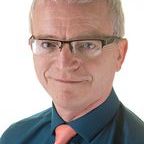
Professor Allan Wilson CSci, FIBMS, FRCPath (Hon), MBA
Consultant Biomedical Scientist, IBMS Past President, Monklands University Hospital, NHS Lanarkshire
Changing landscape of cervical cytology and diagnostic cytopathology (molecular/digital/AI)
Cytopathology
Changing landscape of cervical cytology and diagnostic cytopathology (molecular/digital/AI)
2pm – 3pm BST, 24 September 2025 ‐ 1 hour
Cytopathology
Learning outcomes
Delegates attending this presentation will be able to:
- Explain the fundamental concepts of digital pathology and artificial intelligence, including their roles and applications in modern cytology.
- Summarise recent advancements in cervical cytology, focusing on techniques, technologies, and methodologies that enhance screening and diagnosis.
- Analyse the latest innovations in diagnostic cytology, including improvements in accuracy, efficiency, and the integration of molecular techniques.
- Discuss strategies for integrating digital pathology and AI into clinical practice, emphasising the importance of adaptability and continuous learning in the evolving landscape of pathology.
- Understand how advancements in cytology and pathology can lead to improved patient outcomes.
Speakers

Dr Anthony Maddox
Consultant Cellular Pathologist, Lead for diagnostic cytopathology and respiratory pathology, West Hertfordshire Teaching Hospitals NHS Trust

Professor Allan Wilson CSci, FIBMS, FRCPath (Hon), MBA
Consultant Biomedical Scientist, IBMS Past President, Monklands University Hospital, NHS Lanarkshire
Changes in treatment due to molecular testing (gynae and diagnostic cytology)
Cytopathology
Changes in treatment due to molecular testing (gynae and diagnostic cytology)
3pm – 3.30pm BST, 24 September 2025 ‐ 30 mins
Cytopathology
Abstract
This presentation will cover:
- Application and relevance of molecular testing in Gynae and Diagnostic cytology
- How it is applied to patient pathways
- Implications to patients
Speakers

Mary Jones BSc, MSc, FIBMS
Senior Biomedical Scientist, Royal Cornwall Hospitals NHS Trust, Molecular Cell Biology Unit - Histopathology
Indeterminate thyroid lesions
Cytopathology
Indeterminate thyroid lesions
4pm – 4.30pm BST, 24 September 2025 ‐ 30 mins
Cytopathology
Absract
This presentation will cover:
- Overview of the Thy reporting systems
- New RCPath guidance
- Challenges with reporting indeterminate lesions
- Clinical limitations of Thy3a and Thy3f lesions
- What an indeterminate diagnosis means to the clinician and the patient
Speakers

Dr Ash Chandra
Consultant Histo & Cytopathologist, Guy’s and St Thomas’ NHS Foundation Trust
Idylla™ ThyroidPrint® study – UK multi-centre validation
Cytopathology
Idylla™ ThyroidPrint® study – UK multi-centre validation
4.30pm – 5pm BST, 24 September 2025 ‐ 30 mins
Cytopathology
Abstract
The prevalence of thyroid nodules in the general population is common. Correct diagnosis and risk stratification is vital to ensure appropriate patient management and prevention of unnecessary surgery for benign lesions. Molecular profiling is a valuable adjunct for risk stratification, reducing unnecessary surgical procedures. By identifying genetic alterations associated with malignancy, molecular assays help stratify patients into higher or lower risk categories, informing the need for surgical intervention. However, access to these expensive tests is limited, costly and poses significant delays. The ThyroidPrint® assay was developed to make molecular testing more accessible, affordable and rapid without the need for large expensive platforms and specialist expertise locally.
This presentation will discuss:
- The current limitations of cytology on indeterminate THY3 thyroid lesions
- Molecular risk stratification and the benefits to patient
- The ThyroidPrint® test
- The study results3
Speakers
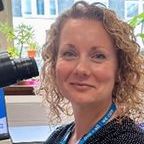
Leonie Wheeldon
Consultant Biomedical Scientist - Diagnostic Cytopathology, Royal Cornwall Hospitals NHS Trust
Gynaecological histopathology reporting qualification – a personal experience
Cytopathology
Gynaecological histopathology reporting qualification – a personal experience
9am – 9.30am BST, 25 September 2025 ‐ 30 mins
Cytopathology
Speakers

Sandie Iles
Advanced Specialist Biomedical Scientist, Imperial College Healthcare NHS Trust
The Scottish exclusion audit
Cytopathology
The Scottish exclusion audit
9.30am – 10am BST, 25 September 2025 ‐ 30 mins
Cytopathology
Abstract
Following a major incident in the Scottish cervical screening programme in 2022, a full review of how women are excluded from the programme was undertaken. The review took over two years to complete and highlighted the need for accurate data recording and clear communication between clinicians, women and the programme team.
This presentation will describe the lessons learned from this extensive audit which has never been carried out in the UK and also the changes introduced to ensure all women are appropriately managed.
Speakers

Professor Allan Wilson CSci, FIBMS, FRCPath (Hon), MBA
Consultant Biomedical Scientist, IBMS Past President, Monklands University Hospital, NHS Lanarkshire
Results of BAC survey - Impact of centralisation of services
Cytopathology
Results of BAC survey - Impact of centralisation of services
10.30am – 10.50am BST, 25 September 2025 ‐ 20 mins
Cytopathology
Abstract
This presentation will discuss:
The BAC undertook a workforce survey in 2017, which was prior to the implementation of HPV primary screening and the resultant lab reconfigurations. This survey indicated that there could be workforce gaps in the future with an ageing, less mobile workforce. A further survey was undertaken in 2024, 5 years post HPV implementation, in order to get a clear view of the current state prior to the next round of commissioning and implementation of new NHSCSP initiatives.
Speakers
Alison Cropper CSci, FIBMS
Consultant Biomedical Scientist & Clinical Lead for Cervical Cytology, University Hospitals of Derby and Burton NHS Foundation Trust
Validating the Hologic Genius system for the NHSCSP
Cytopathology
Validating the Hologic Genius system for the NHSCSP
10.50am – 11.10am BST, 25 September 2025 ‐ 20 mins
Cytopathology
Abstract
A review of Derby Cytology's experience in the participation of a feasibility and workflow study to evaluate the performance of cervical cancer screening utilising the Hologic Genius Digital Cytology System.
Speakers
Caron Mitchell FIBMS
Consultant Biomedical Scientist, University Hospital of Derby and Burton NHS Foundation Trust
Hologic Genius system – a service evaluation
Cytopathology
Hologic Genius system – a service evaluation
11.10am – 11.30am BST, 25 September 2025 ‐ 20 mins
Cytopathology
Speakers

Global Digital Cytology
Cytopathology
Global Digital Cytology
11.30am – 12pm BST, 25 September 2025 ‐ 30 mins
Cytopathology
Abstract
Digital cytology is fast emerging as the next logical step in the digitisation of pathology samples. following the national screening committee decision to approve the use of digital histopathology for reporting of biopsies generated by the cancer screening programmes, the next logical step is the use of digital algorithms in cervical cytology. Many other countries including Germany, France, Belgium and Australia have already adopted this new technology.
This presentation will describe the advantages of digital cytology and how it may address some of the issues within the UK screening programmes and provide an overview of the use of Digital cytology across the globe.
Speakers

Professor Allan Wilson CSci, FIBMS, FRCPath (Hon), MBA
Consultant Biomedical Scientist, IBMS Past President, Monklands University Hospital, NHS Lanarkshire
Interesting and difficult cases – cervical cytology
Cytopathology
Interesting and difficult cases – cervical cytology
2pm – 2.30pm BST, 25 September 2025 ‐ 30 mins
Cytopathology
Abstract
Presentation and discussion of case studies from interesting and/or difficult cases in cervical cytology.
Speakers

Glandular lesions – impact of false negatives
Cytopathology
Glandular lesions – impact of false negatives
2.30pm – 3pm BST, 25 September 2025 ‐ 30 mins
Cytopathology
Learning outcomes
Delegates will understand:
- Impact of false negatives
- Pitfalls
- Medici legal implications
Speakers
Dr Michael McKenna
Clinical Director Blueprint Programme & Consultant Pathologist, Southern Health & Social Care Trust
A Canterbury Tale: Cervical screening scandals and litigation
Cytopathology
A Canterbury Tale: Cervical screening scandals and litigation
3pm – 3.30pm BST, 25 September 2025 ‐ 30 mins
Cytopathology
Abstract
This presentation will discuss:
- Internal quality control and trend analysis
- Patient harm and impact of high profile cases
- Media and political responses to screening problems
- Litigation
Speakers
Dr Michael McKenna
Clinical Director Blueprint Programme & Consultant Pathologist, Southern Health & Social Care Trust

